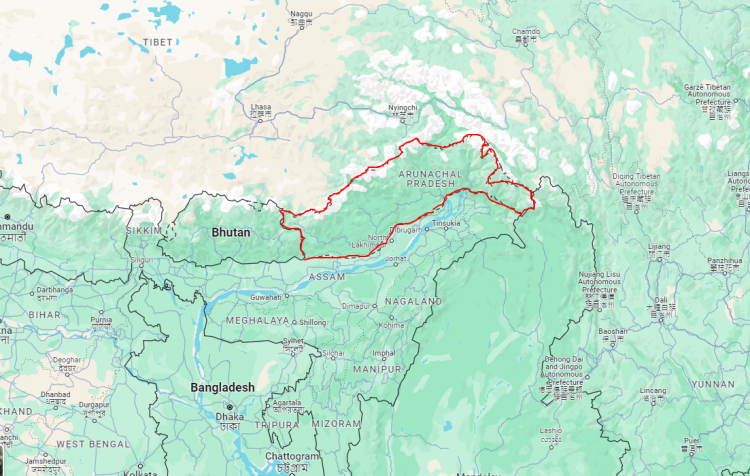The United States has firmly rejected China's "unilateral attempts" to advance its territorial claims over the Indian state of Arunachal Pradesh, weighing in on the escalating dispute between New Delhi and Beijing. The US State Department spokesperson, Vedant Patel, stated, "The United States recognizes Arunachal Pradesh as Indian territory and we strongly oppose any unilateral attempts to advance territorial claims by incursions or encroachments, military or civilian, across the Line of Actual Control."
The Line of Actual Control (LAC) is a demarcation that separates India-controlled territory from that controlled by China. The US statement comes in response to the recent inauguration of the "Sela Tunnel" by Indian Prime Minister Narendra Modi in Arunachal Pradesh, which triggered sharp responses from Chinese officials. China, which refers to the territory as Zangnan, claims Arunachal Pradesh is part of southern Tibet, while India rejects those claims, stating the state has always been a part of India.
Michael Kugelman, director of the South Asia Institute at the Wilson Center, views the US statement as a reflection of consistent efforts to fully align itself with India in its competition with China. "I see this statement as a reflection of consistent U.S. efforts to fully align itself with India in its competition with China," Kugelman told CNBC. He pointed out that while the US typically refrains from commenting on some Indian border disputes, such as the one with Pakistan over Kashmir, in this case, Washington is signaling its solidarity with New Delhi.
Border tensions between India and China have risen in recent years, with a major escalation in 2020 resulting in the deaths of 20 Indian soldiers and four Chinese troops. Last year, China renamed 11 places in Arunachal Pradesh, a move strongly opposed by India. Senior Colonel Zhang Xiaogang, deputy director general of the Information Office of China's Ministry of National Defense, stated that "China never recognizes and firmly opposes India's illegal establishment of the so-called 'Arunachal Pradesh.'"
India's foreign ministry responded to Zhang's comments, with spokesperson Randhir Jaiswal stating that Arunachal Pradesh "was, is and will always be an integral and inalienable part of India." He added that the Chinese Defense Ministry made "absurd claims" over the Indian State of Arunachal Pradesh and that "repeating baseless arguments in this regard does not lend such claims any validity."
The US stance on the matter has been met with appreciation from Indian experts. Harsh V. Pant, vice president for studies and foreign policy at Observer Research Foundation, a New Delhi-based think tank, told CNBC, "It shows how far India-U.S. relations have come. Even when it comes to the matter, which has been very sensitive, such as the India China border dispute, the U.S. today is openly standing with India."
However, China has strongly opposed the US remarks on Arunachal Pradesh. Lin Jian, a spokesperson for the Chinese foreign ministry, stated during a regular press briefing, "Delimitation of China-India boundary has never been completed. The China-India border issue is a matter for China and India, it has nothing to do with the U.S." Lin accused the US of using indiscriminate means to provoke and use other countries' disputes to serve its own selfish geopolitical interests.
The ongoing border dispute between India and China remains a sensitive issue, with both countries fortifying positions and deploying troops and equipment in the area over the past few years. Despite agreeing to hold talks, India and China have continued to trade barbs over territorial claims.
As the US aligns itself more closely with India in its competition with China, the Arunachal Pradesh dispute serves as a flashpoint in the complex geopolitical dynamics of the region. The US rejection of China's claims and support for India's territorial integrity is likely to further strain relations between Washington and Beijing, while strengthening the strategic partnership between the US and India.






